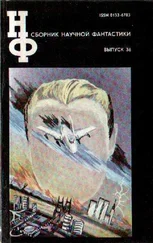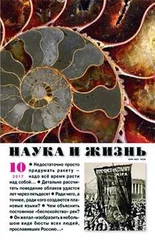“Here comes Chambalooloo!” said Orit, frowning. She poked a knitting needle in the air and prophesized: “Some day all this will end, and not in a good way! The papers say they’re dangerous, I’m telling you!”
“The papers all belong to the Bank,” I interjected to silence her.
She huffed but threw me a flirtatious glance.
“Ah!” snorted Flora, “Now it’ll want to paint us for a handout. Who needs to be painted, who? Tell it that the Rebbetzin said we shouldn’t accept paintings from tin beggars.”
“But the Rebbetzin also said we must treat them nice!” replied Nana fiercely.
“Nothing good will come out of this one,” claimed Orit, disappointed. “This is no real man, this one.”
Her mother looked at her, sad and hurt. The old ladies’ lips trembled in an attempt to hide their smirks. As for me, I turned my face up diplomatically to see whether there were any clouds in the sky.
The robot stopped in front of us and asked, “Madam, can you spare a gift of metal?”
Nana smiled, signaled for it to come closer, searched in her housecoat’s pockets, and took out a large nail, rusty and bent. Smiling happily, she handed it to the Tin Beggar: “There you are, Chambalooloo.”
“Another nail?” Holding it, the Tin Beggar looked utterly disappointed.
A long time ago Nana poked around in her shed and found a bucket full of large, rusty, bent, totally useless nails. Generously, she would give one to Chambalooloo every day, except on Shabbat. As I said, Nana lives near a religious neighborhood. The tin beggars learned to watch their steps on the holy day, since the time some metallic unfortunate started cleaning a street in Me’a She’arim as a gesture of good will. It was Shabbat, and the worshippers emerged from their synagogue to tear it to pieces, leaving behind only tiny bits of metal.
“Would you like me to paint your portrait, Madam?” the Tin Beggar asked Nana.
Amazingly, the chief occupation of tin beggars is art. They paint, they play music, they tell beautiful stories, all for metal handouts. But resolutions angrily adopted by the Writers and Poets Union, the Painters and Sculptors Union, and the Musicians Union declared that any painting, poem, story, or tune produced by a tin beggar is not to be considered a work of art (and for good reason, too: few humans can meet the impossibly high standards set by the tin beggars). Thus, the tin beggars were doomed to remain the makers of ephemeral, perishable art, since there was no one willing to preserve it.
“There’s a rule against painting in this neighborhood,” said Nana. “But my leg hurts. Can you just do us a favor and throw out the garbage?”
Hearing Nana’s request, I could no longer keep a straight face and burst out laughing. How like Nana! For a rusty nail a day, she’d made the Tin Beggar her slave.
The robot’s shoulders sank. It went into her home and came out again, carrying the garbage can in one huge hand. I got up and stepped into the kitchen to make myself some coffee. Returning to sunlight, I sat myself back on the stool, facing the old ladies. The Tin Beggar returned Nana’s trashcan to the kitchen. Upon emerging, it started rocking to and fro on its heels to draw Nana’s attention while she was arguing with the ladies about the exact time of the Tish’a b’Av fast onset.
I smiled again. It was waiting to ask whether Nana wanted anything else. Knowing her, she would definitely ask it to do some more, like clean the windows, then sweep the floor, and if there was any laundry to wash, do that as well. Nana was not one to let such an opportunity slip by.
Finally, Nana addressed the Tin Beggar. “Did you throw out the garbage, Chambalooloo, apple of my eye?”
“Garbage disposed of,” it intoned. “Will there be anything else, Madam?”
“Chambalooloo darling,” Nana said charmingly, “my leg hurts terribly. There are a few dishes in the kitchen sink. Could you please wash them? If it’s not too difficult?”
My grin grew wider as I observed how obsequiously this gigantic hunk of metal was bent to Nana’s iron will.
“No, it’s not too difficult,” groaned the robot.
The metal giant took a step toward the kitchen, then froze.
“Madam,” it said quietly to Nana, “there is a giant mouse in your kitchen.”
“You didn’t even enter the kitchen, so how can you tell?” Nana wondered.
“I can hear it.”
Nana pursed her lips in annoyance and waved a finger at the Tin Beggar. “It’s not so nice, shirking work like this. What did I ask for, anyway? Some help for five minutes, that’s all.”
“I am not shirking work. You have a giant mouse in your kitchen.”
Now Nana became mad. “There are no mice in my kitchen! You tell me, am I treating you wrong, the way you treat me now? Don’t I give you a nail every day?”
“You are treating me kindly, and you do give me a nail every day, and I’ll do the dishes. But right now there is a giant mouse in your kitchen.”
I covered my mouth to hide my grin, squinting at the crones. They looked like they were ready to rise and stab the Tin Beggar to death with their knitting needles.
“That’s what I told you,” Orit said sanctimoniously to Nana. “Nothing good will come out of this one.”
“No, you’re wrong,” said Nana vehemently to Orit (as a show of good will indirectly intended for the Tin Beggar), “it is alright. Perhaps it got tired today. But for years I’ve been asking it to help me, and it’s come through every time. Maybe it’s just not feeling well today.”
The Tin Beggar said miserably, “I am telling the truth!”
The professionals claim that robots have no feelings. But we Jerusalemites know full well they’re sensitive, and they do have feelings.
“What truth?” said Nana angrily.
“There is a giant mouse in your kitchen.”
Nana decided to check this out, and, being the shrewd person she was, immediately put the burden on someone else. “Ethan,” she said to me, “you go see what’s in the kitchen.”
I got up from my stool, taking the empty coffee cup with me, and flashed a friendly smile at the ladies. Odelia returned my smile with her zipperlike mouth. Avrum’s mother’s smile reminded me of the Angel of Death. Orit’s fat cheeks hid her beady eyes as she attempted another coy smile. Only Nana gave me a direct glare.
I went into the hallway with the Tin Beggar trailing me in its meticulous limp. The rooms were lined up along the hallway, the third door leading into the kitchen. There was indeed some noise in there, the sound of something heavy being dragged on the floor. I opened the door and looked in.
Astonishment nearly knocked me off my feet. By the sink, near the cabinets, there stood a mouse as big as a small donkey, a bit taller than the height of my hips, all gray, its whiskers thick as ropes. The mouse, aiming its snout at the shelves, was sniffing the condiment jars one by one. Its weight was too much for its skinny legs, so it leaned on its backside against the floor. Its breathing was a running gurgle indicating a superhuman, I mean a supermousy, effort. I stared stupidly at the long pipe that was its tail.
“It might be dangerous,” said Chambalooloo behind me.
Hearing its voice, the mouse turned heavily toward us, and what it did then made me gasp in even greater surprise. It shrank to cat size. The transformation was fast, and obviously, the reduction in size gave it back its agility. It started skittering to and fro, squeaking angrily. Eventually it calmed down a little, squatted on its behind in front of me, drawing its body up like a hamster. I stared at it, my mouth agape. The mouse started squeaking again, waving its paws. Recovering from my surprise, I realized that there was some pattern to its tweeting, as if it was trying to communicate with me. Judging by the motions it made with its paws, it must have been an angry communication.
Читать дальше






